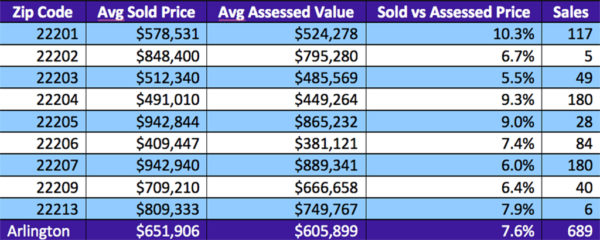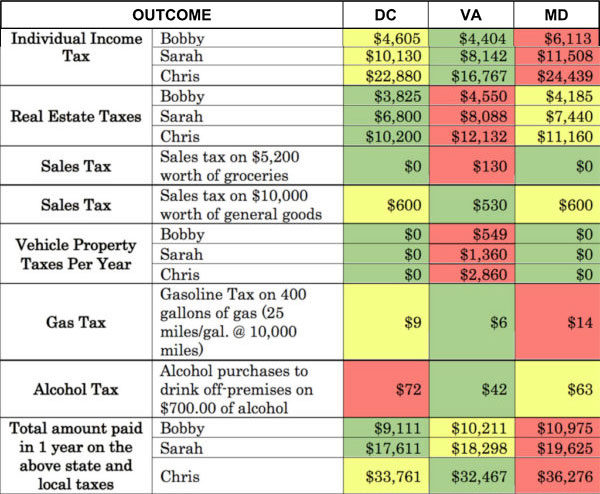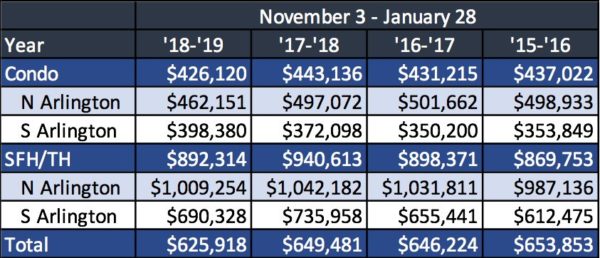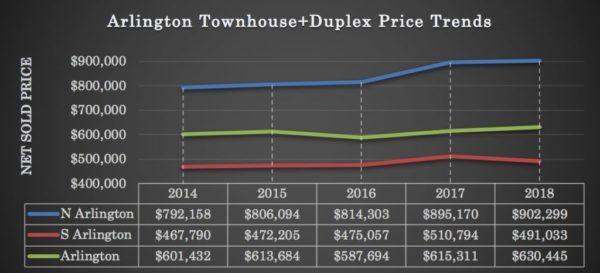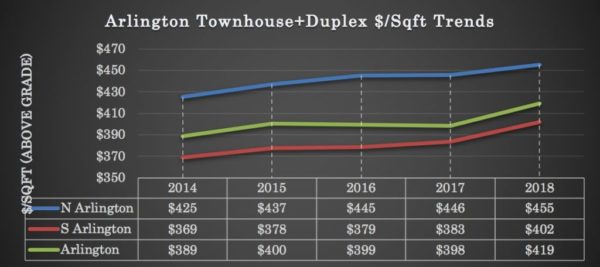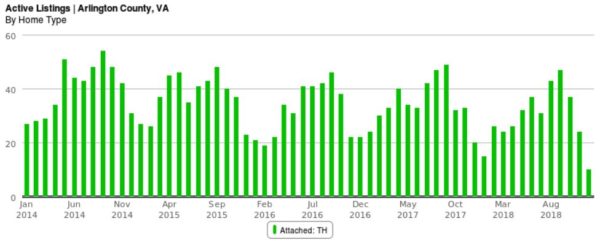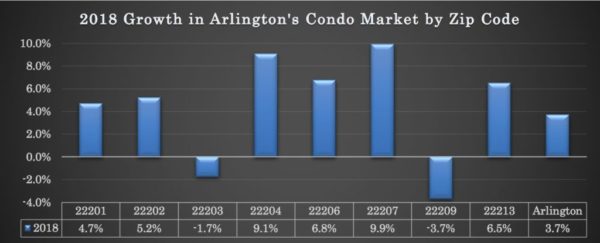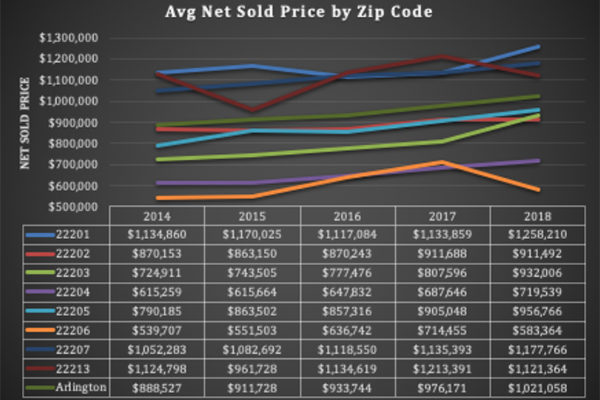This regularly-scheduled sponsored Q&A column is written by Eli Tucker, Arlington-based Realtor and Rosslyn resident. Please submit your questions to him via email for response in future columns. Enjoy!
Question: I’m hoping to purchase a home this year and wondering what types of inspections I’ll be able to do on the home before buying it and about how much they will cost.
Answer: Most sales contracts include an Inspection Period (usually 3-14 days after an offer is accepted) for buyers to conduct various inspections of their choice on the property. Depending on how the contract is structured, buyers may have the right to negotiate for repairs or credits based on the findings and/or the right to terminate the contract.
Standard/Common Inspections
General Inspection: This is the most common inspection for buyers to conduct with costs ranging from about $300-$1,000 depending on the size, age and type of the home. A General Inspector is hired by the buyer and works for the buyer, not for the seller or the buyer’s agent.
A general inspection is classified as a “visual inspection” of the surface, structural and mechanical components of a home like appliances, flooring, electrical, plumbing, foundation and other elements which includes running all mechanical components they can access. Your inspector cannot open up walls or floors and, in many cases, cannot climb on roofs.
A good inspector will be able to identify many of the home’s flaws through the general inspection as well as identify any signs that further specialty inspections are needed (see below). Some inspectors carry high-end thermal readers to find evidence of moisture, poor insulation, or faults in the ductwork.
After the inspection, you’ll receive a detailed report with photos, descriptions and recommendations of everything the inspection covered. An extra benefit of an inspection is that you’ll learn a lot about how your home works and property maintenance.
Radon Testing: Radon is toxic gas from the ground that is known to cause cancer with prolonged exposure above certain levels (EPA website). Most homes in Northern Virginia have an average to above average risk of elevated radon levels and it is impossible to know without testing. Radon levels can vary widely from one house to another on the same block.
I always recommend buyers test for radon if they have basement/below ground living areas (radon generally doesn’t impact above-ground levels). The test is relatively inexpensive ($150-$200) and most general inspectors can administer the radon test as well, which requires a small box to sit in the basement for 2-3 days.
In the event of elevated radon levels, radon remediation systems are highly effective and usually cost about $1,000.
Wood-Destroying Insect (WDI) Inspection: Around here this is primarily an inspection for termites or carpenter bees. With a cost of $50 or less it makes sense for buyers to order this for a purchase of a townhouse or single-family detached home (generally not necessary for a condo).
Of note, the Northern Virginia Sales Contract requires sellers to cover the cost of any treatment or repairs related to WDI. This can usually be ordered with the general inspection or separately with a pest company.
Specialty Inspections
In some cases, it makes sense to bring in specialists for additional inspections. This may be on the recommendation of your General Inspector or for a number of other reasons.
Ultimately, this comes down to a cost-benefit analysis by you and your agent because you can easily spend thousands of dollars on specialty inspections. The following is not an exhaustive list of specialty inspections, but those that tend to be the most common. Cost estimates do vary.
- HVAC Inspection ($150+)
- Chimney Inspection (free-$200): A structural flaw in a chimney or a failing liner can be very expensive or unsafe if you plan to use the fireplace. A chimney inspection will include a scope of the interior of the chimney.
- Roof Inspection (free-$200)
- Mold Testing ($150+): Ranges from air sampling to testing of a specific area with known mold.
- Lead Testing (varies): If you suspect lead-based paint or want to test for lead in the water. This is worth further discussion around lead and lead paint with your agent.
- Structural Inspection ($250-$1,000+): Settling and settlement cracks are normal, but signs of continuous or abnormal settlement warrant a visit from a structural engineer. A good General Inspector will be able to tell you whether or not further structural evaluation is recommended.
- Water/Sewer/Gas Line Inspection ($500+): The main lines connecting your water, sewer and gas from the public lines to your home are expensive failure points, with replacement usually costing $5k-$10k in addition to repairing any landscaping, driveway, etc torn up in the process. Tree roots are a common cause of damage. These inspections involve scoping of the entire line and get pretty expensive. An alternative to paying for these inspections is purchasing relatively cheap insurance through Dominion Energy’s insurance partner HomeServe.
- Electrical Inspection ($200-$500): If there are concerns over the quality of the electrical system/installation, you can hire an electrician for further evaluation.
- Plumbing Inspection ($200+): If there are concerns over the quality of the plumbing lines, you can hire a plumber for further evaluation and, for an additional cost, scope the plumbing lines.
- Pool Inspection (varies)
I usually recommend starting with the standard inspections and adding additional inspections as needed. If you want to include a bunch of specialty inspections in addition to the standard inspections, you’ll want to make sure your contract provides enough time in the Inspection Period to complete all of them and set that expectation with the seller up-front, especially if the home is occupied.
Keep in mind that even with a full Inspection Contingency in place, with the right to negotiate for repairs and credits, there’s no guarantee that after paying thousands of dollars for inspections that the seller will agree to repair, replace, or credit everything you ask them to.
If you’d like a question answered in my weekly column, please send an email to [email protected]. To read any of my older posts, visit the blog section of my website at www.EliResidential.com. Call me directly at (703) 539-2529.
Eli Tucker is a licensed Realtor in Virginia, Washington DC, and Maryland with Real Living At Home, 2420 Wilson Blvd #101 Arlington, VA 22201, (202) 518-8781.



